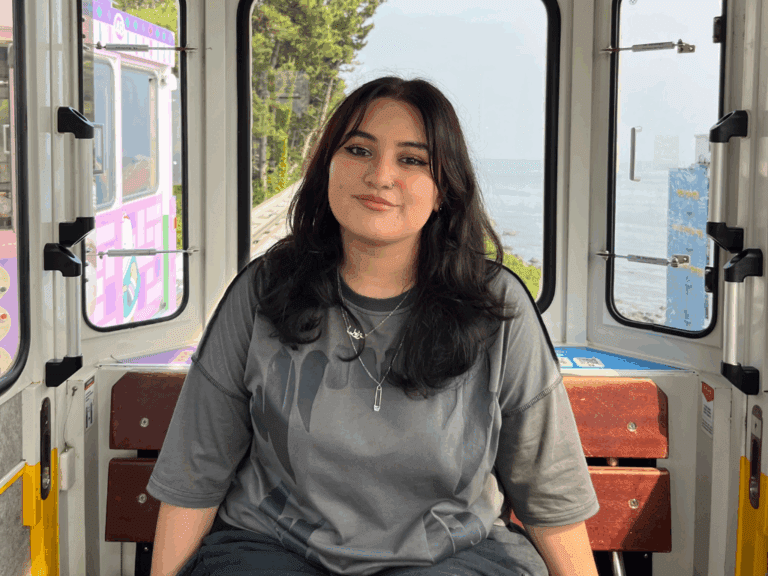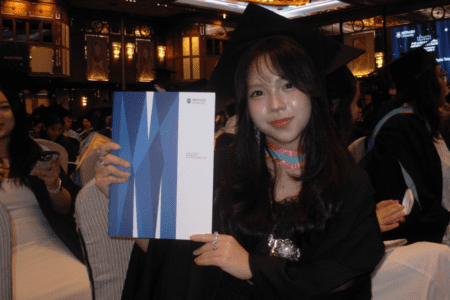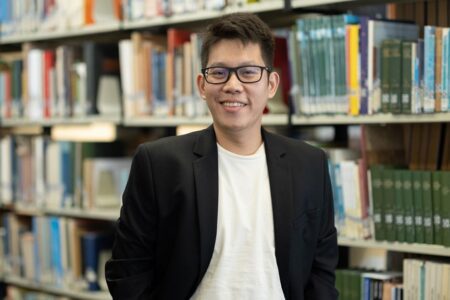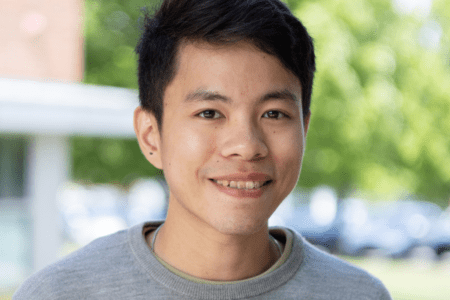
For Noorin Ansari, a British psychology student of Afghan heritage, her decision to pursue a BS in Psychology was personal.
She wanted to be an expert in a field that most Asians still see as taboo: mental health.
In the West, mental health has entered the mainstream. TV series like “13 Reasons Why, ” “Ginny & Georgia,” “Sex Education,” and “Euphoria” are spreading the message and it’s loud and clear: talk about it, normalise it, heal.
In Asia, the issue is still skirted around, if not completely silenced. In some circles, depression and anxiety are still stigmatised or told that they are “just in your head.”
Ansari may be British but grew up in Afghan culture and speak Persian at home.
Caught between the Western and Asian worlds, you can feel like you’re in both worlds and none. It can be uneasy and uncomfortable.
But instead of ingnoring or retreating , Ansari chose to confront both cultures.
She chose to channel her discomfort into a BS in Psychology at the University of Nottingham.

Ansari was born in Pakistan but moved to the UK when she was two. Source: Noorin Ansari
Her Afghan roots inspired her BS in Psychology journey
A 2021 study revealed that over 64.67% of the Afghan population had personally experienced trauma due to war or sexual violence. Despite this, mental health resources remain scarce and underutilised — in some cases, completely unknown.
“Many in my community don’t even realise support exists,” Ansari says. “And even when it does, people are labelled as ‘crazy’ or told to just get over it.”
By getting a BS in psychology, Ansari thought she could understand the Asian POV more.
But the more she looked into the field, the more she saw that clinical research, diagnostic frameworks, and therapeutic models are all built around Western populations.
There’s “very little focus” on Asian experiences. “That’s why I want to expand research into trauma within Asian ethnic communities,” she says.
Getting a BS in psychology was the first step. In 2022, she moved 202 kilometres from home to begin her studies at the University of Nottingham, one of the best universities in the UK.
But Ansari felt something was still missing.

To understand the psychology from an Asian perspective, she decided that studying in South Korea was the best way to do it. Source: Noorin Ansari
Here’s why studying psychology in South Korea was key
There’s no one “right place” to get a BS in psychology, but for Ansari, going abroad — specifically to South Korea — was essential.
“I had other options like Hong Kong and Singapore, but I wanted to be as far away as possible from the UK to immerse myself completely,” she says.
South Korea, while advanced in many ways, faces serious mental health challenges. It has the highest suicide rate among OECD countries.
According to the 2024 National Mental Health Knowledge and Attitude Survey, nearly 73.6% of respondents reported experiencing mental health issues in the past year — a significant jump from previous years. Alarming increases in stress, depression, smartphone addiction, and suicidal ideation were also recorded.
“I actually thought Japan had the highest suicide rate,” Ansari recalls. “I was shocked to learn it was South Korea. I kept wondering — where does that come from?”
What she found was eye-opening.

Ansari is now back in the UK to complete her BS in Psychology degree. She has plans to further her education to focus on clinical psychology. Source: Noorin Ansari
The longer she stayed in South Korea, the closer she got to uncovering the roots of its mental health crisis.
“Learning about the suneung, their university entrance exam, blew my mind,” she says. “It’s so intense. I looked at some of the English questions and couldn’t answer them — and I’m a native speaker.”
That pressure is a major contributor to youth mental health struggles in Korea. Data released in May 2025 shows psychiatric care visits more than doubling over the past four years due to conditions such as depression and anxiety.
Ansari went on to explore other social issues — including the rise of technology-fuelled crimes like AI-generated deepfake pornography, often targeting teenage girls.
She also learned about molka (몰카) — illegal hidden camera recordings of women — and began to understand how tech, patriarchy, and trauma intersect in disturbing ways.
“I was shocked to hear high school boys were making sexual deepfakes of girls they knew,” she says. “And that’s not even rare.”
Witnessing all this first-hand changed her.
“I wanted to understand these issues — not just what’s happening, but why. From a cultural, historical, political, and even philosophical angle,” she says.
Being able to spend a year in South Korea as part of her BS in Psychology let her do just that
She’s now back in the UK, set to finish her degree in 2026.
Next, Ansari hopes to pursue a doctorate in clinical psychology and continue researching trauma in underrepresented populations.
Her goal is clear: to contribute to a field that is too often dominated by Western perspectives — and to bring real, culturally relevant mental health support to communities like her own.










